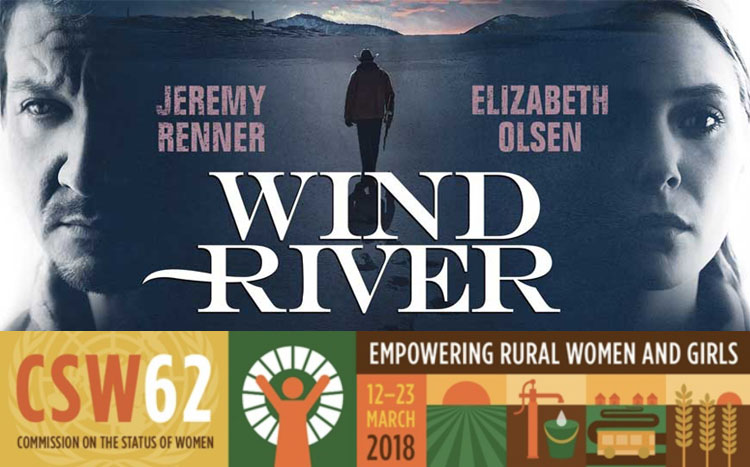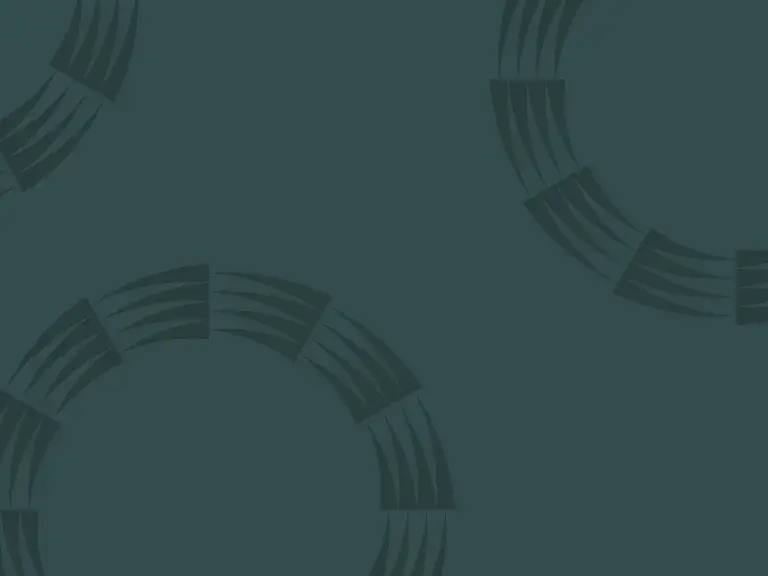
 (New York, NY) — Indigenous experts called for action during a March 19, 2018, panel to fix a legal system that too often leaves Native women in rural America unprotected from violence and sexual assault. The discussion included a screening of select scenes from Wind River, a feature film written and directed by Taylor Sheridan, that tackles the subjects of sexual assault and missing and murdered indigenous women. The event was part of the NGO-Forum of the 62nd session of the UN Commission on the Status of Women.
(New York, NY) — Indigenous experts called for action during a March 19, 2018, panel to fix a legal system that too often leaves Native women in rural America unprotected from violence and sexual assault. The discussion included a screening of select scenes from Wind River, a feature film written and directed by Taylor Sheridan, that tackles the subjects of sexual assault and missing and murdered indigenous women. The event was part of the NGO-Forum of the 62nd session of the UN Commission on the Status of Women.
American Indian and Alaska Native women face violence at much higher rates than other women. Alaska Native women, for instance, suffer the highest rate of forcible sexual assault in the nation, and some villages report rates of domestic violence up to 10 times higher than in the rest of the United States.*
“Wind River offers us a glimpse of the reality that so many Native women face, especially those living in rural and remote areas,” said Caroline LaPorte, Senior Native Affairs Policy Advisor for the National Indigenous Women’s Resource Center. “Native women experience violence at higher rates than other women, and barriers embedded in U.S. law and policy make it harder for them to get law enforcement to respond or to get prosecutors and the courts to act. It is a legal framework, rooted in colonization and genocide, that was created to fail us. ”
“Indigenous women in the United States, like indigenous women everywhere, have the right to live lives free of all forms of violence and discrimination,” said Chris Foley, attorney at the Indian Law Resource Center. “Unfortunately, racial and gender-based violence are still too common, and the United States is failing to live up to its international human rights obligations.”
“In New York City or at the United Nations, maybe it is hard to imagine what it is like not to even have 911 or to dial 911 and find out that the nearest police officer is hours away,” noted Carmen O’Leary, Executive Director of the Native Women’s Society of the Great Plains. “But this happens all the time in Indian county. It happens all the time in Alaska Native villages. We need to change this. We need more resources for our police departments. We need more funding to support our shelters and advocates. But most of all we need better laws to allow our tribal governments to better protect us.”
“Much of what we need is action from the United States government—changes in law and policy. But to get that action, we need allies around the country, and around the world, to stand up with us,” Foley said. “That’s why we are here in New York at the UN Commission on the Status of Women. To inform the international human rights community and people everywhere about what is happening in our indigenous communities and to build support for changes in the law to restore safety to women and girls.”
The event was cosponsored by the Indian Law Resource Center, the National Congress of American Indians, the National Indigenous Women’s Resource Center, and the Native Women’s Society of the Great Plains. For more information, email Chris Foley at [email protected].
*A Roadmap for Making Native America Safer, A Report to the President and Congress of the United States, Chapter 2, Reforming Justice for Alaska Natives, p. 41 (November 2013).
Cosponsoring Organizations
Founded in 1978 by American Indians, the Indian Law Resource Center (ILRC) is a non-profit organization that provides legal assistance to indigenous peoples of the Americas to combat racism and oppression, to protect their lands and environment, to protect their cultures, to achieve sustainable economic development and genuine self-government, and to realize their other human rights. Its Safe Women, Strong Nation’s project works with indigenous women’s organizations and Native nations to end violence against indigenous women. ILRC is in consultative status with the UN Economic and Social Council. (www.indianlaw.org).
The National Congress of American Indians (NCAI) is the oldest and largest national organization of American Indian and Alaska Native tribal governments, and is committed to ending the epidemic of violence against American Indian and Alaska Native women. In 2003, NCAI created the NCAI Task Force on Violence Against Women to address and coordinate an organized response regarding violence against American Indian and Alaska Native women. NCAI is in consultative status with the UN Economic and Social Council. (www.ncai.org).
The National Indigenous Women's Resource Center, Inc. (NIWRC) is a nonprofit organization whose mission is to ensure the safety of Native women by protecting and preserving the inherent sovereign authority of American Indian and Alaska Native nations to respond to domestic violence and sexual assault. NIWRC’s Board consists of Native women leaders from American Indian and Alaska Native nations across the United States. NIWRC is a national resource center for Indian nations providing technical assistance, policy development, training, materials, resource information, and the development of tribal strategies and responses to end the violence. In 2015, NIWRC launched the Violence Against Women Act (VAWA) Sovereignty Initiative to defend the constitutionality and functionality of all VAWA tribal provisions. (www.niwrc.org).
The Native Women’s Society of the Great Plains, Reclaiming Our Sacredness, is a coalition of domestic violence and/or sexual assault programs committed to the reclamation of the sacred status of women. The Society offers a vision that ends domestic and sexual violence against Native women, in all aspects – a vision of change. The Society works to support and strengthen sisterhood and local advocacy and program development efforts through culturally specific education, technical assistance training and resource implementation. The geographical area that constitutes the service area of the Society includes tribes in southern Minnesota, Montana, Wyoming, North Dakota, South Dakota and Nebraska. (http://www.nativewomenssociety.org).
